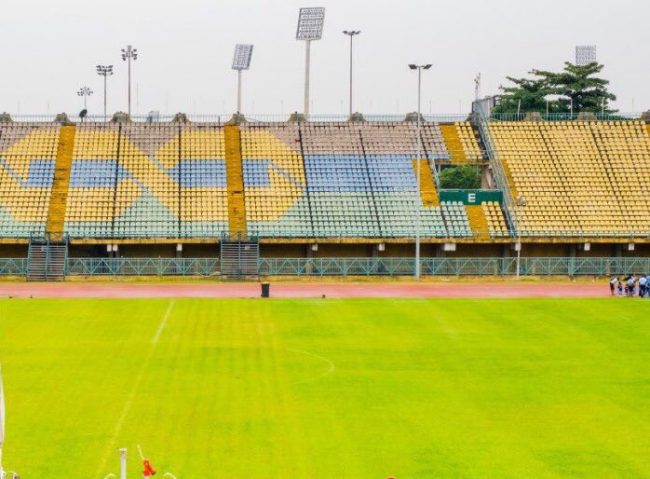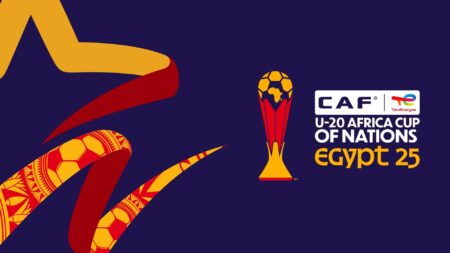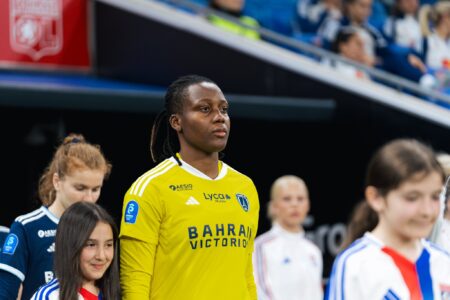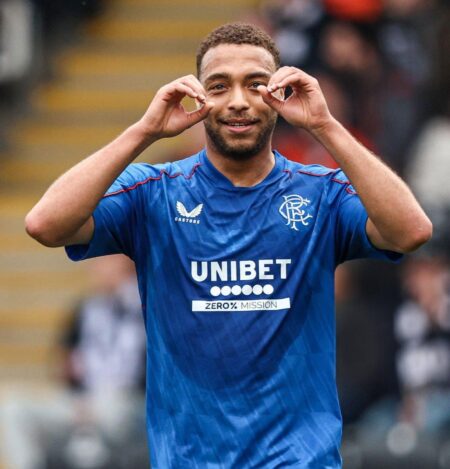Listen to the article
I passed by the Liberty Stadium, Ibadan, the other day. I wept, inside. The once-beautiful edifice that should be a heritage site by now, has become a ghost town, lifeless and idle, a carcass looking forlorn like an abandoned amphitheater, a mournful picture on the wall, without a whiff or a stir, like a lost boat listing idly in a vast open sea waiting to be destroyed by the next tempest.
Papa Obafemi Awolowo would wake up from his mausoleum and see the ‘evil’ perpetrated by men with shallow minds and narrow visions. He would shed his own tears and then ‘curse’ bitterly.
Just as he considered the Nigerian State irredeemable in 1983 (or 1986), so would he conclude that Nigerian sport, from what has happened to one of the great achievements in 5 years during his reign in Western Nigeria – Liberty Stadium, a futuristic sports arena built 60 years ago with facilities that were as good then as some of what you will find in Maracana or Nou Camp for football matches today – has become, also, irredeemable.
The Stadium, unfortunately, now stands as a painful reminder of the affliction that has hit all of sports in Nigeria. As I drove by the stadium, I kept wondering where the fixing of Nigerian sports would start from in this scattered oasis of hope in a vast desert of crisis and chaos in sports administration.
The reality is that development of sports has been halted for decades and Nigeria can no longer become a global sports giant with all the massive gifts of nature until the country changes its course and mounts the saddle of proper development again.
It is all so painful.
Last week, also, a lone voice rose above the tenor of despair, drawing the sports minister’s attention to what needs to be done to football down the line.
Because of who the messenger was, a person perceived as a rouble-rouser and trouble maker by many, the message was lost in transit. It was not echoed anywhere.
Yet, beneath the message lies a small but significant path to removing the shackles that have held down sports for all the decades since Amos Adamu joined the sports ministry with limited grounding as a sportsman, or as one of the original visionaries of the direction of Nigerian sports. He tasted ‘blood’ in the Nigeria Football Association when he was made the first Sole Administrator in Nigeria’s football history, and was subsequently catapulted to the zenith of sports. He became the most powerful man in the history of Nigerian sports, setting off a chain of unintended developments from which Nigeria has not recovered to this day.
Harrison Jalla, through his message, a ‘love letter’ written to the sports minister, drew our attention to a possible new future.
Jalla is a former football player. He was not your pin-up Nigerian football superstar. But I can attest that he played football in the 1980s for a few clubs that included Bendel Insurance FC of Benin. That tells how high he went playing in the domestic Nigerian league!! He was a good player.
Since ending his career as a footballer, however, he has been in the vanguard of promoting the interests and welfare of Nigerian ex-football players.
To many stakeholders, he is a pain in the …. and a thorn in the flesh of successive football administrators. Even amongst his colleagues of the footballers’ fraternity he has made more enemies than friends in the struggle for the soul of Nigerian football administration.
Through the past few decades, I sided with him and co-travellers like Austin Popo, Felix Eshalomi, Dahiru Sadi, and so on, during several ‘battles’. He was always at the heart of raising concerns about the rightful and deserved place for footballers in administration, on players’ welfare, manipulated elections, injustice in the system, corruption in the federation, exclusion of players in the electoral process, overbearing influence of State FAs, neglect of retired players, and so on and so forth.
Many people ‘hate’ the man and condemn his methods, but few can dismiss or disregard the import of his many causes and battles.
In short, hate him or love him, he will always feature in struggles against perceived injustices in the Nigerian football system, never shying away from controversies or fights, and always ready to go to civil courts challenging perceived injustices.
His most recent spat has been with the President of the NFF, Amaju Pinnick, who he pursued with petitions even up to FIFA in a futile effort to disqualify him from contesting for a seat on the FIFA Executive Council. Amaju survived the ugly scare even though some scars still remain.
I have wondered why some higher authorities have not waded into their matter and settled them. I don’t have that answer, I must confess. They are both my friends.
Since last week, Harrison Jalla has started to raise an issue I consider very important to the future of Nigerian football. Who will succeed Amaju Pinnick’s board in 2022? He points at the NFF statutes that brought in the current board and suggests that several issues in them need fixing in order to halt the southward slide of Nigerian football development introduced systematically since Amos Adamu created the ‘new’ structures that have derailed football and sports development. Since introducing his own influences into football administration (and by extension, into sports as a whole) football has not recovered from the damage inflicted.
I make these statements with all sense of responsibility. Since the puppeteer-in-chief exited the stage of sports what he put on ground continues to fester. They have halted any meaningful and sustainable development apparatus, because successive elections have not thrown up the best leaders on merit but based on other extrenous factors including influence, politics and money used to burn down the stairways to good leadership.
Unfortunately, long after Adamu left the stage, Nigeria has continued to pay the price and will continue to do so unless and until there is a powerful intervention to change the system that has woefully failed the country.
That’s why Harrison Jalla’s call is timely and deserves some attention and consideration. The powerful influence in Nigerian sports that cobbled together the disaster of the present is the same influence that can restore sanctity and sanity, equity, progress, meritocracy, simplicity, transparency, accountability, a clear practical domesticated vision, and a conducive environment for new boards of sports federations, including the NFF.
It appears to me that government, represented by the sports ministry, does not yet know how to go about it without succumbing to the fear of the oft-dangled ‘axe’ of a threat to ban Nigeria by international sports organisations, in order to fix whatever needs to be fixed for sports administration to get out of this pit of underdevelopment and chaos.
Three federations of the three most popular sports in Nigeria, have been in internal crisis for years as a result of the problem created by bad statutes for elections into boards. The basketball, athletics and football federations have not known any peace since the application of Adamu’s adopted prescription of elections into the boards.
The Sports Minister must abort that process. He needs solid advice based on experience and knowledge of the history of the sports sector. His current well of advisers (and I mean no disrespect) is ‘limited’. There are still persons, alive and kicking, who were in the ministry and participated actively in the cobbling of these knotty statutes that are strangulating Nigerian sports. The minister needs a few of them for guidance to enable him navigate successfully through the minefields he will surely find on this necessary path to freedom.
Harrison Jalla, on this matter, is right. Unless the matter of the statutes of federations are fixed, and they can be fixed with some diplomatic dexterity, Nigerian football will be in for another long season of drought when Amaju Pinnick’s tenure ends in the summer of 2022. Only the sports ministry can effectively reset that button. It must start the process now.







